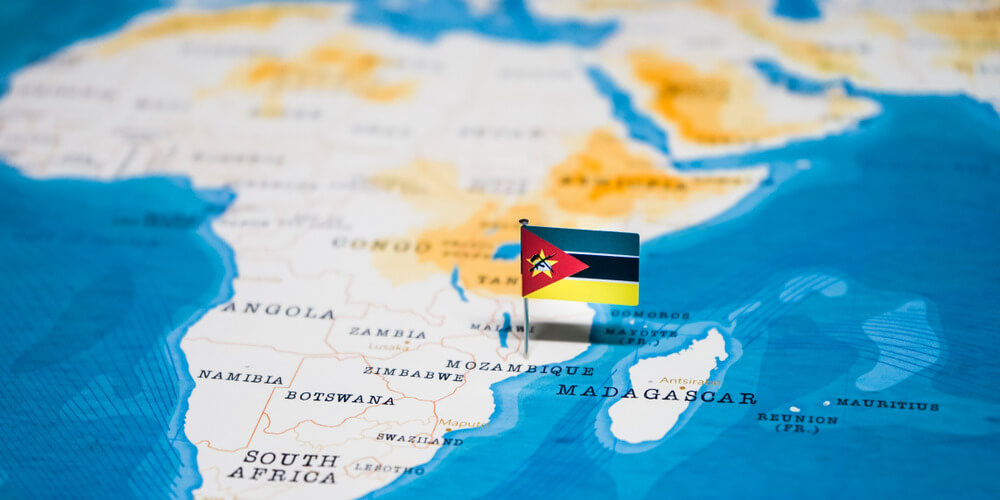
Sales and consumption of halal products rises in Mozambique
Halal sector benefitting from investments from Muslim regions including the UAE.
Maputo: The sale and consumption of halal products, including food and beauty products, in Mozambique is growing in line with the global demand for halal-certified goods, president of the Halal Commission of Mozambique (Comissão Halal de Moçambique) Maulana Ibraimo Issa told Salaam Gateway.
He said Mozambique halal traders and manufacturers were profiting from a global market Statista expects to grow from $1.4 trillion in 2017 to $2.6 trillion by 2024. While definitive halal sales data in Mozambique is not available, Issa said there was “plenty of evidence” of local market expansion. This included an increase in the number of companies seeking and securing halal certification and the south-east African country’s growing Muslim population.
According to Mozambique’s National Institute of Statistics (Instituto Nacional de Estatistica – INE) 20% of its 32.1 million citizens are Muslim compared to 17% in the 2007 census.
Since the commission’s creation in 2005, around 300 Mozambique businesses have been certified halal nationally and requests for halal certificates grew exponentially between 2019 and 2021 with around 100 establishments under a certification review.
“Applicants range from simple shops to shopping centres, restaurants and hotels, food and cosmetics manufacturers,” he said.
This growth was confirmed by Zeiss Lacerda, the executive secretary of the Mozambican Poultry Industry Association (Associação Moçambicana da Indústria Avícola – AIMA), in stating all the organisation’s products are halal. However, halal poultry sales had fluctuated in the past two years, affected by the global pandemic.
“Before the pandemic, sales were better, but when (COVID-19) broke out, there was a lot of demand as people feared the lockdown and made a lot of stock. Then came stagnation and now, with the easing of restrictions, the situation is returning to normality, so we expect to exceed levels prior to COVID-19,” he said.
Retailers have also noticed the general growth in Mozambique halal food sales. The manager of the Talho Versalhes butcher’s shop in the capital Maputo told Salaam Gateway the increased halal sales had triggered the decision to expand its halal-certified offerings to red meat, chicken and processed meat products.
“These all comply with the halal process,” he said.
COVID-19 has also caused uneven sales at this business, but with the Mozambiquan government easing movement restrictions, introduced in February 2020 and gradually being eased from August 2021, he said there was a growth trend.
This positive outlook has been backed up by US-based University of Arkansas researcher Alison Creasey, who concluded even when poor, Mozambique Muslims “may be willing to pay a premium for halal meat products to uphold Islamic beliefs”.
This was particularly prevalent in the more predominantly Muslim north with halal products valued for delivering safety and quality.
“Halal meat is safer than non-halal meat,” survey respondents told Creasey.
With the World Bank stating the average gross domestic product (GDP) per head in Mozambique was $448 in 2020, this willingness to pay more for halal may be an important boon for traders and manufacturers.
Many of the halal-certified products are imported, especially from neighbouring South Africa, but also the Middle East, Asia and Europe with the commission inspecting products and shops for compliance. It also offers advice to Muslim consumers wanting to buy non-certified products, including pharmaceutical and cosmetic products, without purchasing outright haram lines.
While the commission says there is no solid data, it agrees the sale of halal cosmetics in the country remains a small segment with relatively few traders selling halal-labelled personal care products such as hand and face creams.
However, there were plans to create a halal-compliant tourism sector to attract Muslim tourists to the country’s extensive sandy beaches and to see its rich wildlife and diverse culture. A Mozambique Tourism Association spokesperson said there were ongoing discussions and initiatives to create halal tourist packages, including hotels run on halal lines.
“Though it is still a challenge,” said the spokesperson.
The commission indicated regulation in Mozambique was not easy and Mozambique Muslims complained some shopping centres sold poultry as being halal when they had been mixed with products made without following halal slaughter and processing rules.
Some imported halal and non-halal chickens were brought into the country in the same packaging, causing a mix of these products among retailers. Consequently the commission has frequently appealed to consumers to be cautious when purchasing halal foods, saying a product label was no guarantee of authenticity.
“Procedures have to be followed,” said Issa.
Meanwhile, the legitimate halal sector was growing following increased investment from Muslim countries, notably the United Arab Emirates (UAE). Mozambique's Agency for the Promotion of Investment and Exports (Agência para a Promoção de Investimento e Exportações – APIEX) approved more than $1 billion’s worth of UAE investment between 2014 and 2018 with more than 20 UAE companies now investing in the country.
The agency noted UAE companies currently export lubricants, machinery and motor vehicles to Mozambique and imports ores, tobacco, aluminium, precious stones and agricultural products.
Bilateral trade was growing to now account for $700 million annually, according to APIEX.
“Such investments and trade partnerships will only boost a halal sector in this African country that is already growing sustainably,” the agency said.
© SalaamGateway.com 2022. All Rights Reserved

Elísio Muchanga